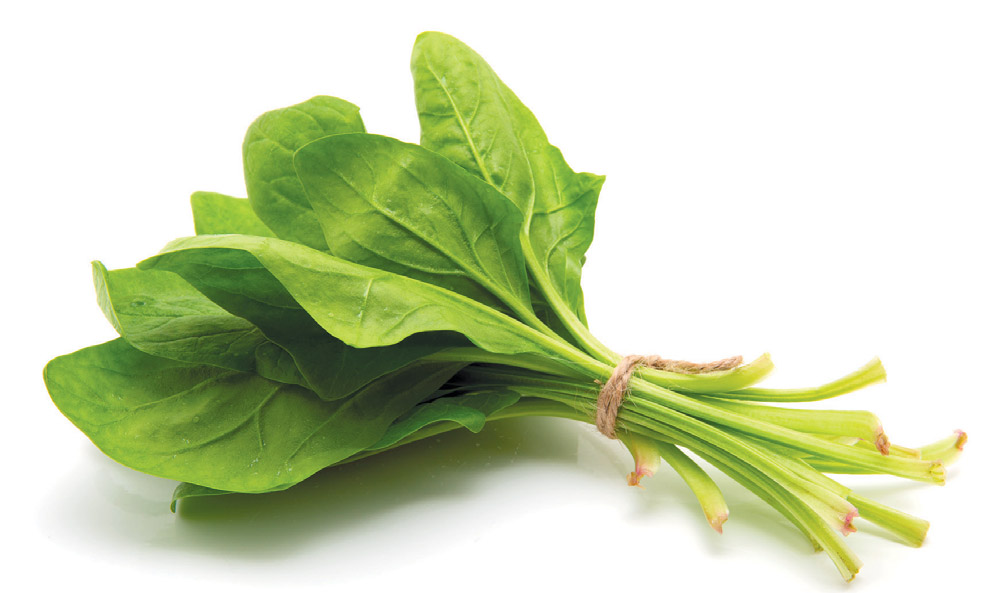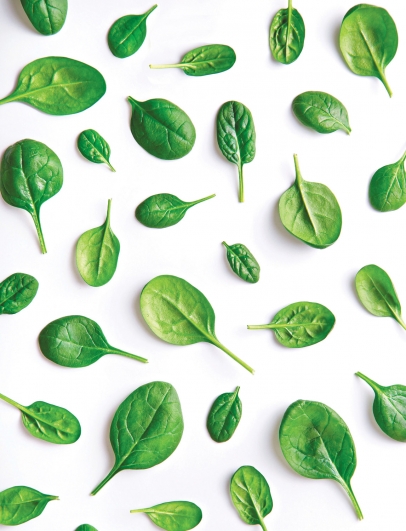EATING DURING PREGNANCY
While a proper diet is key to maintaining overall health, for a woman who is pregnant, being mindful of the foods she consumes takes on dual importance. Though she has to consider the baby’s needs, choosing foods that will nourish and support her throughout her pregnancy are just as vital.
“It’s never too soon to be mindful about what you’re eating once you discover you’re expecting,” says Barbara Lubischer, MS, RDN, of Overlook Medical Center in Summit. “The focus should be on a healthy, balanced diet that includes a variety of foods so that the baby can get all the nutrients they need.”
Lubischer explains that certain nutrients are important. “Pregnancy is a ‘strain’ on a mother’s body, so she needs to keep up with its demands,” she says. “Increasing calcium intake and vitamin D is important for developing strong bones and teeth,” says Lubischer, adding that foods such as spinach, broccoli and dairy products (or fortified nondairy nut or soy milks), are excellent choices that provide the additional benefit of protein. Protein is essential for healthy cell and tissue growth and repair, and benefits both mother and baby.
“Good sources of protein include lean meats like fish and poultry,” Lubischer says. “For vegetarians, beans, lentils, tofu, soy, eggs and nuts are rich sources as well. On average, at least 6 ounces of high-protein foods should be consumed daily,” she notes, adding that often these numbers add up. “If you have an egg in the morning, that’s an ounce, and if you add 2 or 3 slices of turkey breast on a sandwich for lunch, you’re halfway there. It’s an easy number to reach for most people.”
Quality protein sources also come with the added benefit of iron. Iron is essential for the production of hemoglobin, which carries oxygen throughout the body. Since blood and oxygen are being supplied to the developing baby, iron needs increase.
“Red meat is an especially wonderful source of iron,” she says. “Since vitamin C helps with iron absorption, adding foods like broccoli, tomatoes, oranges and cantaloupe into the diet can help it get where it needs to go,” she says, adding to be careful drinking tea high in tannins, which can work against iron absorption.

“Getting caught up in the details can add unnecessary stress. Following the 80/20 rule (choosing healthy, nutritious, clean foods 80% of the time, and allowing yourself to indulge 20% of the time) is a good way to reduce pressure and feel good about indulging when cravings call to you,” —Nicole Piazza, holistic registered dietitian of Nourish to Heal in Flemington
Another crucial nutrient for expectant mothers is folic acid.
“Folic acid is critical for preventing neural tube defects like spina bifida and anencephaly in newborns. Luckily, many cereal products are fortified with folic acid,” she says.
While turning to wholesome foods is the best way to get the nutrients you need, Lubischer strongly encourages filling in the gaps with a quality prenatal vitamin.
“Though the focus on food is important, prenatal vitamins help fill in everything else a mother needs. It’s important to educate expecting mothers about their increased nutritional requirements and reassure them that they are on the right track,” she says.
With so much emphasis on nutrition during pregnancy, meeting the requirements may seem daunting to some.
“During pregnancy, there are many hormonal and emotional changes that impact taste, cravings, appetite and needs,” says Nicole Piazza, holistic registered dietitian of Nourish to Heal in Flemington. “Many woman put added pressure on themselves to completely change their diet to a perceived ‘healthy’ diet. This is often unrealistic and sets the woman up for feeling like a failure because ultimately weight gain is part of the process of having a baby,” she says.
Piazza advises that instead of emphasizing micronutrients, expectant mothers should focus on a balance of macronutrients.
“In general, including whole grain carbohydrates, lean protein, healthy fats, an abundance of fruits and vegetables and staying hydrated are the best thing you can do for both you and your baby,” says Piazza. “Getting caught up in the details can add unnecessary stress. Following the 80/20 rule (choosing healthy, nutritious, clean foods 80% of the time, and allowing yourself to indulge 20% of the time) is a good way to reduce pressure and feel good about indulging when cravings call to you,” she says.
While being health conscious during pregnancy is important, there are some factors to consider ahead of time.
“Considering one’s health should start well before pregnancy,” says Rajesh Kumari, DSC, RDN, of Overlook Medical Center in Summit.
“Just like healthy soil, we have to provide the best possible environment for the fetus to grow in. Though micro and macronutrients are important, so is being aware of toxins in your everyday life that can be harmful to your developing baby.”
Kumari recommends, if possible, to work on reducing environmental toxins at least six months to one year before conception.
“It’s important to make good choices. Eliminating as many toxins as possible in your air, food and water greatly benefits a baby’s development,” she says.
When it comes to food, Kumari recommends avoiding artificial ingredients and additives and reducing the intake of fruits and vegetables exposed to insecticides and pesticides.
“Wash fruits and vegetables thoroughly using a little baking soda, and remove the skins of fruits and vegetables prone to high pesticide use,” she says, citing the correlation between neurotoxicity and increased autism rates discovered by scientists in recent years. Kumari says that adding cruciferous vegetables like cauliflower, broccoli and cabbage to the diet can help eliminate toxins from the body. What’s more, doing so can possibly increase fertility.
“For those with infertility issues, cleaning the diet and reducing toxin loads has actually been shown to help women conceive by supporting hormone balance and endocrine function,” she says.
Beyond the adage, “you are what you eat,” eating for two takes on greater meaning. For those who are expecting, food not only nourishes and strengthens, it extends to future generations.









